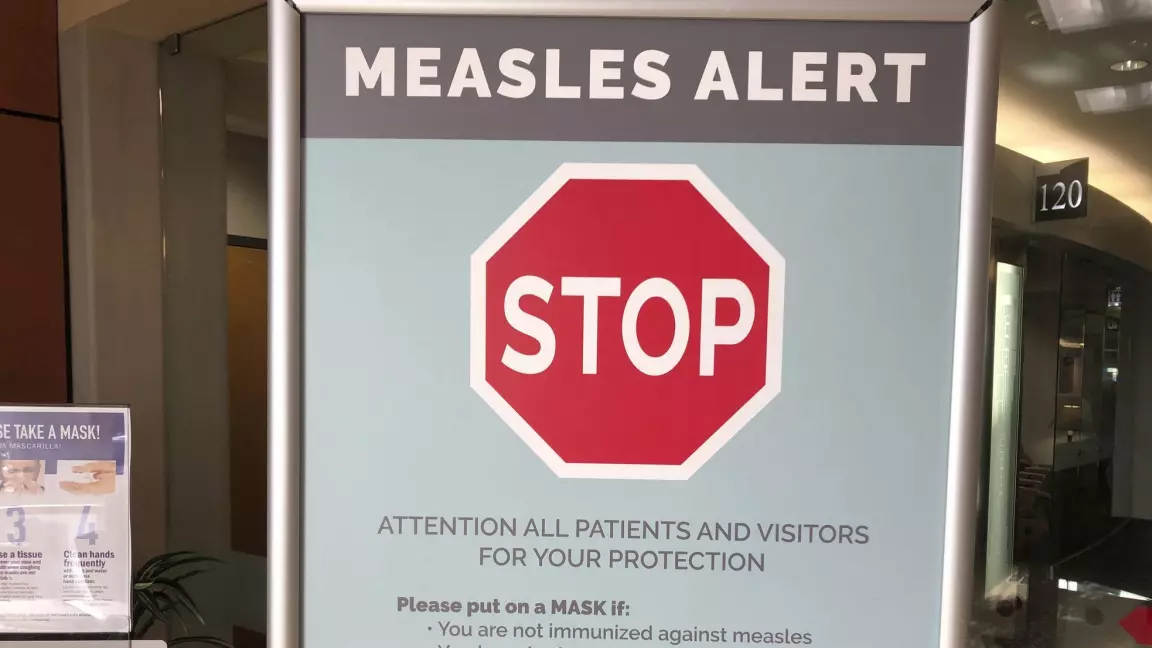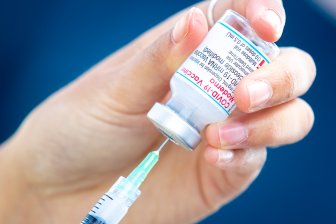Health
Canada has ‘a practical and a moral duty’ to fight COVID-19 around the world: Freeland – Global News
Canada’s deputy prime minister, Chrystia Freeland, says we have a responsibility to make sure COVID-19 isn’t only quashed within our own borders, but abroad as well.
Her comments come on the heels of a G20 meeting in Venice, where the leaders of the 20 most powerful economies in the world agreed that global economic recovery is at risk as a result of the rise of new COVID-19 variants — a risk that is heightened by some nations’ poor access to vaccines.
“We are focused on doing everything which is necessary to make sure that Canadians are safe and make sure that Canadians are vaccinated. And I really want to congratulate Canadians, because we have seen such enthusiasm in our country for going out and getting vaccinated,” Freeland said to reporters on Saturday during a teleconference.
“Having said that, we also absolutely recognize that this is a global pandemic, that we have both a practical and a moral duty to fight the pandemic around the world.”
In Canada, over 78 per cent of the population has received at least one dose of a COVID-19 vaccine. Another 48 per cent were fully vaccinated as of Saturday, according to COVID-19 Tracker Canada.
Those figures are starkly contrasted by vaccine rates in many other countries around the world — where some have first-dose coverage that’s as low as one per cent.
“In some parts of the world, the vaccination rates, even at one dose, are one per cent, two per cent, three per cent, five per cent,” said Dr. Peter Singer, an advisor with the WHO, in an interview with Global News.
“To be safe is for this fire to be put out everywhere in the world, because otherwise, if it’s burning anywhere, it’s going to be casting off embers that are going to ignite flames everywhere.”

Singer isn’t alone in his concern.
Infectious disease specialists have voiced similar warnings, noting that helping other nations isn’t a selfless act — it actually protects everyone.
“When (COVID is) burning in other places, it’s really a plane ride away. So that can result in outbreaks here as well,” said Dr. Sumon Chakrabarti.
“Getting vaccines to everybody around the world will benefit all of us.”
Beyond helping to save lives abroad, experts say that tackling COVID-19 also helps keep the world ahead of one of the biggest risk factors of the pandemic — variants.
As a virus spreads, it replicates. With each opportunity the virus has to replicate, it has more and more chances to make a mistake. Sometimes, those mistakes end up being advantageous for the virus — either allowing it to spread more easily, or potentially making the virus more severe.
The more COVID-19 spreads, the more opportunities it has to replicate and mutate. That means the biggest risk for the creation of variants is the large pockets of the world where uncontrolled spread is still occurring, Infectious Disease Specialist Dr. Zain Chagla explained to Global News.
“The big things that lead to variants are large unvaccinated populations, particularly ones where health systems are really poor and patients with immune conditions,” he said.
Canada has taken steps to try to help bolster vaccination efforts around the world, Freeland said on Saturday.
The government has contributed $1.3 billion to the World Health Organization’s ACT accelerator, which aims to establish a framework involving governments, philanthropists and civil society — to name a few — that work together to help ensure the global vaccination rollout runs smoothly.

Prime Minister Justin Trudeau also pledged to contribute 100 million vaccine doses to global vaccination efforts at the G7 meeting in June.
But experts are eyeing the world’s vaccine priorities with some concern after Pfizer recently announced its plans to craft a fresh vaccine aimed at combatting the Delta variant of COVID-19. If approved, it could be the third jab some receive, while some countries are still waiting for their first vaccines.
“There is an ethical concern about prioritizing dose three for Americans over doses one and two for the rest of the world,” John Moore, a virologist at Weill Cornell Medicine in New York, told Global News.
“The general feeling is that it is not the right time for a third dose of the mRNA vaccines.”
While there are few studies showing how long the protection provided by COVID-19 vaccines lasts, the early research is promising.
A study published in the journal Nature in late June found mRNA-based vaccines create a more “persistent” germinal centre B cell response, which means that a person’s immune response to the jab is stronger and longer-lasting.
The researchers examined participants four months after they received their first Pfizer dose and found that the germinal centres in their lymph nodes, likened to a boot camp for immune cells, kept pumping out the cells needed to protect against COVID-19.

This has led some to question Pfizer’s motivations in pursuing the new booster shot.
“It’s being (said) that Pfizer is being somewhat opportunistic,” said Moore.
“Pushing the idea of vaccine boosters will, of course, greatly increase vaccine sales.”
And while Pfizer backed up its latest research plans with claims that the “continued emergence of variants are expected,” experts say the lack of vaccine coverage around the world remains a much bigger threat when it comes to deadly mutations of the virus.
“We can build vaccines to make ourselves more protected against the evolution of this virus,” Chagla said.
“But if we’re not addressing the root cause of the evolution of this virus, then we’re going to be left with chasing our tails over and over and over again.”
© 2021 Global News, a division of Corus Entertainment Inc.
Health
Quebec successfully pushes back against rise in measles cases – CBC.ca


Quebec appears to be winning its battle against the rising tide of measles after 45 cases were confirmed province-wide this year.
“We’ve had no locally transmitted measles cases since March 25, so that’s good news,” said Dr. Paul Le Guerrier, responsible for immunization for Montreal Public Health.
There are 17 patients with measles in Quebec currently, and the most recent case is somebody who was infected while abroad, he said.
But it was no small task to get to this point.
Le Guerrier said once local transmission was detected, news was spread fast among health centres to ensure proper protocols were followed — such as not letting potentially infected people sit in waiting rooms for hours on end.
Then about 90 staffers were put to work, tracking down those who were in contact with positive cases and are not properly vaccinated. They were given post-exposure prophylaxis, which prevents disease, said Le Guerrier.
From there, a vaccination campaign was launched, especially in daycares, schools and neighbourhoods with low inoculation rates. There was an effort to convince parents to get their children vaccinated.
Vaccination in schools boosted
Some schools, mostly in Montreal, had vaccination rates as low as 30 or 40 per cent.
“Vaccination was well accepted and parents responded well,” said Le Guerrier. “Some schools went from very low to as high as 85 to 90 per cent vaccination coverage.”
But it’s not only children who aren’t properly vaccinated. Le Guerrier said people need two doses after age one to be fully inoculated, and he encouraged people to check their status.
There are all kinds of reasons why people aren’t vaccinated, but it’s only about five per cent who are against immunization, he said. So far, some 10,000 people have been vaccinated against measles province-wide during this campaign, Le Guerrier said.
The next step is to continue pushing for further vaccination, but he said, small outbreaks are likely in the future as measles is spreading abroad and travellers are likely to bring it back with them.
Need to improve vaccination rate, expert says
Dr. Donald Vinh, an infectious diseases specialist from the McGill University Health Centre, said it’s not time to rest on our laurels, but this is a good indication that public health is able to take action quickly and that people are willing to listen to health recommendations.
“We are not seeing new cases or at least the new cases are not exceeding the number of cases that we can handle,” said Vinh.
“So these are all reassuring signs, but I don’t think it’s a sign that we need to become complacent.”
Vinh said there are also signs that the public is lagging in vaccine coverage and it’s important to respond to this with improved education and access. Otherwise, microbes capitalize on our weaknesses, he said.
Getting vaccination coverage up to an adequate level is necessary, Vinh said, or more small outbreaks like this will continue to happen.
“And it’s very possible that we may not be able to get one under control if we don’t react quickly enough,” he said.
Health
Pregnant women in the Black Country urged to get whooping cough vaccine – BBC.com


Pregnant women urged to get whooping cough vaccine
Pregnant women in the Black Country are being urged to get vaccinated against whooping cough after a rise in cases.
The bacterial infection of the lungs spreads very easily and can cause serious problems, especially in babies and young children.
The Black Country Integrated Care Board (ICB) is advising pregnant women between 16 and 32 weeks to contact their GP to get the vaccine so their baby has protection from birth.
The UK Health Security Agency warned earlier this year of a steady decline in uptake of the vaccine in pregnant women and children.
Symptoms of the infection, also known as “100-day cough”, are similar to a cold, with a runny nose and sore throat.
Sally Roberts, chief nursing officer for the ICB, which covers Wolverhampton, Dudley, Walsall and Sandwell, said anyone could catch it, but it was more serious for young children and babies.
“Getting vaccinated while you’re pregnant is highly effective in protecting your baby from developing whooping cough in the first few weeks of their life – ideally from 16 weeks up to 32 weeks of pregnancy,” she said.
“If for any reason you miss having the vaccine, you can still have it up until you go into labour.”
Follow BBC West Midlands on Facebook, X and Instagram. Send your story ideas to: newsonline.westmidlands@bbc.co.uk
Health
Measles cases stabilize in Montreal – CityNews Montreal


The number of measles cases has stabilized, according to the Montreal Public Health.
Since March 25, there have been no contaminations reported within the community.
“Our teams have identified all contact cases of measles,” said media relations advisor Geneviève Paradis. “It’s a laborious task: each measles case produces hundreds of contacts.”
All community transmission cases since February 2024 have been caused by returning travelers who were either unvaccinated or partially vaccinated.
Currently, there are 18 measles cases in Montreal – with 46 total in Quebec. This according to the April 18 figures from the provincial government.
“With the summer vacations approaching, if you’re travelling, it is essential to check if you are protected against measles,” explained Paradis.
According to Montreal Public Health, a person needs to have received two doses after the age of 12 months to be immunized against the virus.
They’ve launched a vaccination campaign throughout the region, and currently, 11,341 people have been vaccinated against measles in Montreal between March 19 and April 15.
Vaccination is also being provided in schools and at local service points.
“The vaccination operation is under the responsibility of the five CIUSSS of the territory,” concluded Paradis.
-



 Tech21 hours ago
Tech21 hours agoCytiva Showcases Single-Use Mixing System at INTERPHEX 2024 – BioPharm International
-



 Health17 hours ago
Health17 hours agoSupervised consumption sites urgently needed, says study – Sudbury.com
-
News23 hours ago
Tim Hortons says 'technical errors' falsely told people they won $55K boat in Roll Up To Win promo – CBC.ca
-



 Tech23 hours ago
Tech23 hours agoAaron Sluchinski adds Kyle Doering to lineup for next season – Sportsnet.ca
-



 Politics24 hours ago
Politics24 hours agoTrump faces political risks as trial begins – NBC News
-
News16 hours ago
2024 federal budget's key takeaways: Housing and carbon rebates, students and sin taxes – CBC News
-
Tech22 hours ago
Nintendo Indie World Showcase April 2024 – Every Announcement, Game Reveal & Trailer – Nintendo Life
-
News17 hours ago
Canada's 2024 budget announces 'halal mortgages'. Here's what to know – National Post








